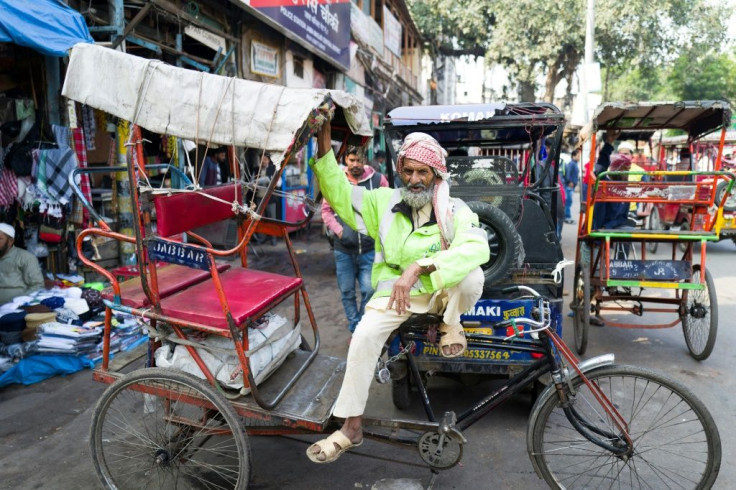India Quarterly Growth Falls To Worst Level In Six Years

India's economy grew at its slowest pace in more than six years in the July-September period, down to 4.5 percent from 7.0 percent a year ago, according to government figures released Friday that piled more pressure on Prime Minister Narendra Modi.
The expansion in Asia's third-largest economy fell from 5.0 percent in April-June and marked the sixth consecutive quarterly contraction.
The GDP growth, now well below the level needed for India to provide the millions of jobs required each year for new entrants to the labour market, poses a major headache for Modi.
His government is struggling to kickstart what was once the world's fastest growing major economy as consumer demand shrinks and unemployment surges to a four-decade high.
Finance minister Nirmala Sitharaman has announced several reforms, easing restrictions on foreign investment in key sectors, slashing corporate taxes, and launching a privatisation drive aimed at reviving moribund state firms.
The central bank, the Reserve Bank of India, has cut interest rates five consecutive times this year in a bid to boost lending.
But none of the measures have raised consumer confidence. Demand for everything from cars to cookies has plummeted.
The slump has already seen India lose its position as the fastest-growing major economy to China this year.
China said last month that its economy grew 6.0 percent in July-September, down from 6.2 percent in the second quarter.
Economists expect India's central bank to announce yet another rate cut on Thursday to combat a liquidity crunch caused by the collapse of India's shadow banking sector. Rates are currently at a nine-year low.
Economist and author Vivek Kaul told AFP that the reforms were a case of too little, too late.

"The Modi government waited for growth to collapse" before taking any action, Kaul said.
"The steps are essentially very marginal and not going to help the economy in the long run," he said, adding that more far-reaching reforms were needed but were unlikely to happen.
Modi's right-wing government won a landslide re-election victory in May but its economic record has been patchy.
Experts say the economy has never recovered from a 2016 shock cancellation of bank notes that forced many small-scale businesses to shut down or the roll-out of a nationwide goods and services tax in 2017.
The opposition Congress Party slammed what it called "failed Modi-nomics" in its comment on the new data.
Mumbai-based economist Ashutosh Datar told AFP the latest figures were "a reaffirmation of how serious and damaging the slowdown is".
"The only message for the Modi government is that it should avoid any more misadventures like demonetisation," he said, warning, "the worst may not be over yet."
Earlier this month New Delhi shelved a controversial report citing "data quality" issues after leaked figures showed that per capita spending had slumped for the first time in four decades.
The unpublished National Statistical Office data showed that rural spending on essential items such as cereals plunged 20 percent between July 2017 and June 2018, the Business Standard newspaper reported.
In a note released before the GDP figures were announced, India Ratings and Research (Ind-Ra) agency said it expected annual growth to come in at 5.6 percent, lower than the 5.8 percent estimated by Moody's and the 6.1 percent projected by the central bank.
"Even the festive demand has failed to revive (the economy) and this is reflected in the current data", Ind-Ra said in a statement.
Analysts say India's economy needs to grow at 8 percent to create jobs for the 1.2 million Indians entering the labour market each month.
© Copyright AFP 2024. All rights reserved.





















